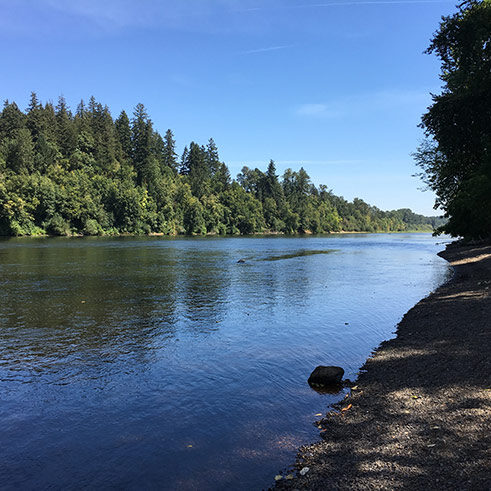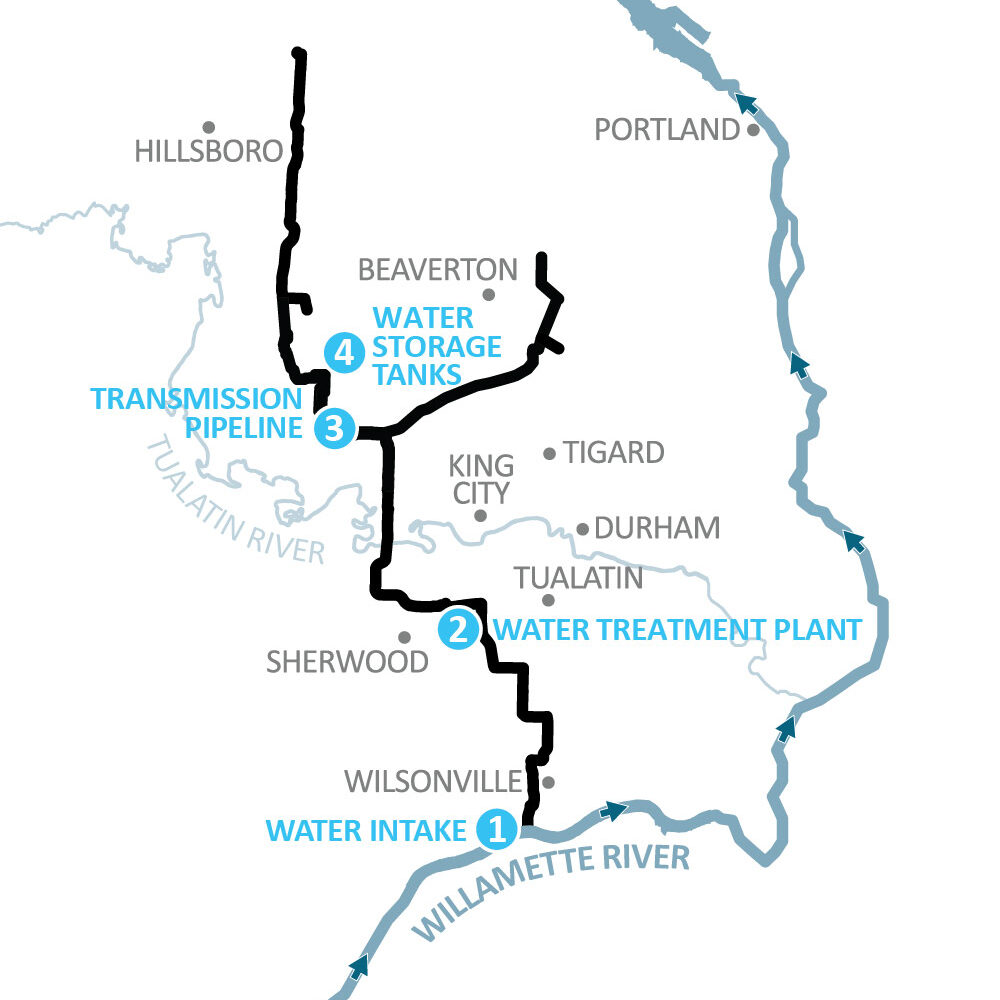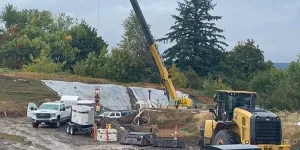
The Willamette Water Supply Program is just one example of Hillsboro’s commitment to supporting water infrastructure.
By Travis Loose (Patch Staff) – May 16, 2017 1:48 pm ET
HILLSBORO, OR — Officials with the city’s Water Department on Monday announced the City of Hillsboro’s support and participation in national Infrastructure Week, which from May 15 to May 19 asks city governments across the country to advocate for local projects that support the roads, bridges, railways, energy systems, and utilities used by U.S. residents every day.
In Hillsboro, water utilities have been a priority for years, with past city leaders showing foresight by implementing plans decades ago that have not only benefitted Hillsboro residents today but also laid the groundwork for improvement projects that will support residents well into the future.
One example of Hillsboro’s penchant for forward thinking investments is the Willamette Water Supply Program (WWSP), a drinking water infrastructure project that has brought the Tualatin Valley Water District (TVWD) and City of Hillsboro together to construct a 30-mile, large diameter water pipeline from the mid-Willamette River at Wilsonville to North Hillsboro, near Bethany.
“This major water infrastructure project spans across five cities in Washington County, including Wilsonville, Tualatin, Sherwood, Beaverton, and Hillsboro,” Willamette Water Supply Program Director Dave Kraska said in a statement on April 25. “We have divided the work up into smaller pieces over several years. This allows and provides local and regional businesses of all sizes an opportunity to be a part of this historic project that will benefit the local economy, provide jobs, and support regional economic development.”
While Hillsboro’s leaders have historically prepared the city for population growth and urban expansion by setting up opportunities to methodically expand water infrastructure, some of the city’s water pipes are starting to show signs of aging. Nationally, according to the 2017 Water Infrastructure Report Card (which gave the U.S. a D+ grade overall), leaking pipes cause the loss of six billion gallons of treated water each day, and an estimated 240,000 water mains break each year. Repairing and replacing water infrastructure to support water service demands over the next 25 years will cost roughly $1 trillion, according to the American Water Works Association.
“In Hillsboro, the average age of water pipes is 30 years old,” Water Department Director Kevin Hanway said in a statement. “Our water infrastructure is strong. The Hillsboro community benefits in many ways from infrastructure investments the City of Hillsboro Water Department makes each day through maintenance, repair, and upgrade.”
In 2016, the Water Department replaced more than 6,000-feet of aging water lines with new, modern materials, city officials said. And in 2015, 10,000-feet of piping was replaced. Both improvement efforts ultimately reduce maintenance costs and improve water infrastructure longevity.
On May 1, the Wilsonville City Council continently approved a 99-year ground lease — and two other related agreements — to allow a six-foot diameter raw water pipeline to run through approximately three miles of Wilsonville’s public right-of-way from a new TVWD/City of Hillsboro water treatment plant. The WWSP pipeline from the mid-Willamette at Wilsonville is expected to serve businesses and hundreds of thousands of residents in Washington County for the next 100 years.
From Wilsonville city spokesman Jon Gail:
The pipeline provides water from the Willamette River intake facility in Wilsonville to Hillsboro, and potentially other cities in Washington County. The approved lease and related agreements specify the total amount and types of compensation the city is to receive, including ground rent, seismic upgrades around the water treatment plant and intake facility, and several public right-of-way infrastructure improvements that TVWD will provide as a part of the pipeline construction.
The agreements also designate Wilsonville as the manager of the current Wilsonville plant, which is owned by TVWD and Wilsonville, and also serves the City of Sherwood. The agreements also provide for upgrades to the intake facility that will provide Wilsonville with additional capacity. The approvals are contingent upon the city council’s acceptance of a final intergovernmental intake agreement that governs the volume of water each party can draw from the Willamette River.
Construction on the pipeline began in 2016 and will be mostly completed through opportunity road construction projects in cities along the pipe’s route. A portion of the pipeline that runs through Wilsonville is currently under construction in conjunction with the city project that will extend Kinsman Road from Barber Street to Boeckman Road, along the Coffee Lake Wetlands in the city’s northwest.
The WWSP pipeline project should be completed by 2026, according to WWSP officials.










